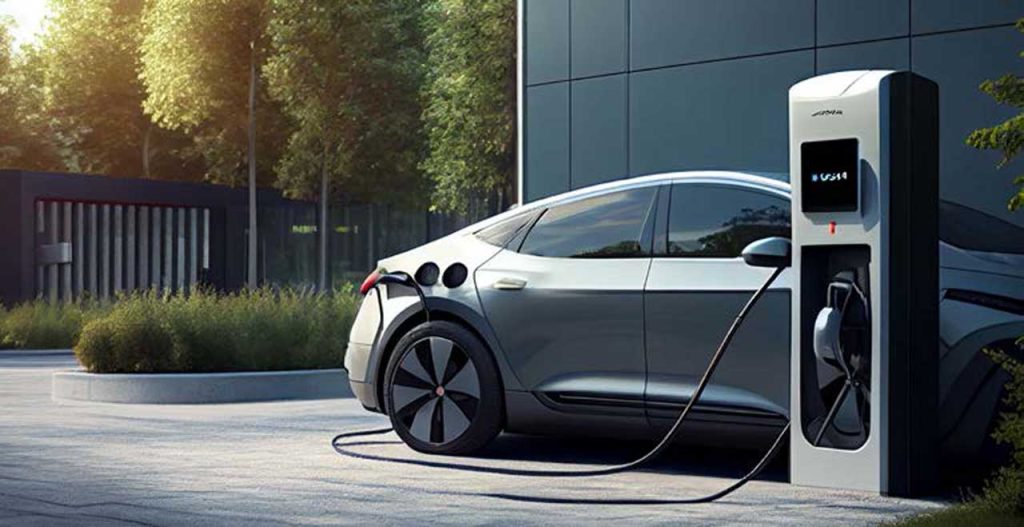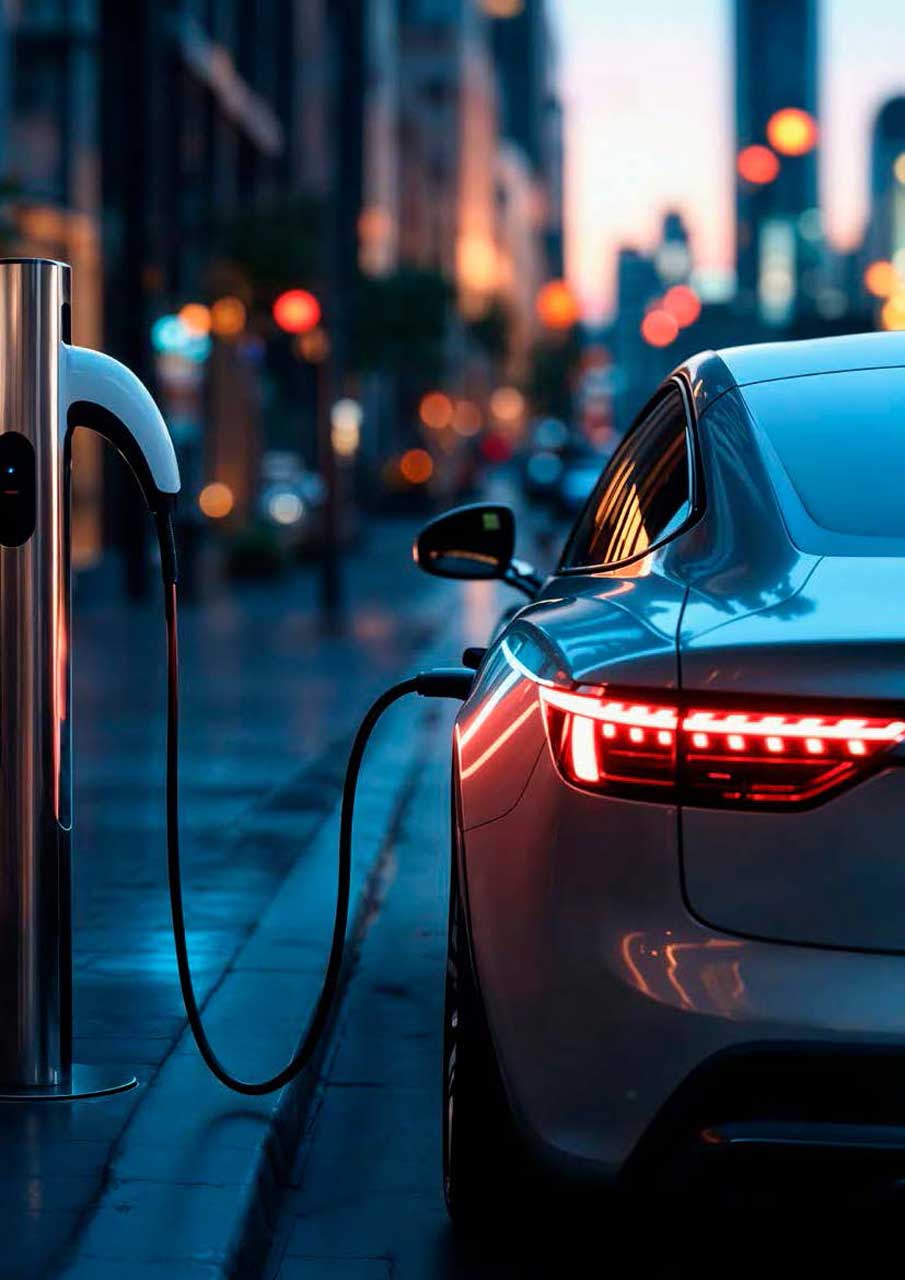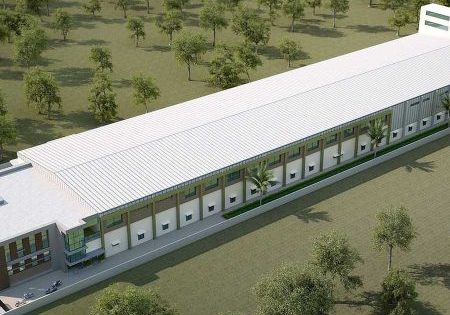New report analyzes how EVs are re-shaping Indian real estate and the implications for the future of construction and property development in the country.
submitted by Savills India
Driven by government initiatives like Faster Adoption and Manufacturing of Electric Vehicles and Production Linked Incentive, India is rapidly emerging as a major force in the global electric-vehicle (EV) market, not only advancing sustainable mobility but also creating significant new demand for real estate to support the required EV infrastructure. The following factors are significant:
India will need upwards of 6,000 acres for EV manufacturing, battery plants and charging infrastructure by 2030.
The total real estate investment required by 2030 for EV manufacturing facilities and charging stations is estimated at US$7.5 billion to US$9 billion. This would be primarily for land acquisition and the construction of facilities for manufacturing EVs, lithium-ion batteries and public-charging stations.
India’s lithium-ion battery manufacturing capacity is projected to grow to between 147 Gigawatt hour (GWh) and 179 GWh by 2030.
An estimated 81,000 to 92,500 public and semi-public EV charging stations will be needed across India by 2030.
Savills India anticipates huge demand for large land parcels for setting up EV manufacturing units, lithium-ion batteries and EV components, as well as small-sized land parcels to set up EV charging stations in cities across the country. A total land requirement of approximately 5,760 to 6,852 acres will be needed for setting up EV manufacturing, lithium-ion battery manufacturing facilities and public charging stations by 2030. This will involve a total potential built-up area of 125 to 149 million ft2, translating to 21 to 25 ft2 per year.
Industrial real estate is evolving with the rise of EV fleets, charging hubs and a growing focus on solar & battery storage.
EV Adoption and Its Implications for Real Estate
The rise of EVs is reshaping the real estate sector in India. Demand for EV charging stations is influencing residential, commercial and retail property values, with buyers and tenants increasingly favoring EV-ready spaces. Hotels with EV charging facilities gain a competitive edge in attracting EV-driving guests.
Industrial real estate is evolving with the rise of EV fleets, charging hubs and a growing focus on solar and battery storage. Increasing EV demand is also driving the need for specialized facilities such as manufacturing plants and battery units, while warehouses and distribution centers are increasingly adopting EV-charging infrastructure to streamline logistics.
Many developers are incorporating EV-friendly features, which is influencing property prices and purchasing decisions. Solar-powered EV charging is expected to become a standard feature in modern real estate developments. As EVs become mainstream, properties that support this transition are likely to see greater value and appeal. This shift is also driving innovation in property design, including the redesign of parking lots and garages to accommodate EV chargers, with considerations for accessibility and scalability.
Catalyst for Innovation in the Real Estate Sector
Here’s a look at the current scenario and rising trends.
Increasing Demand for Charging Infrastructure
- Developers are integrating EV-charging stations into new residential projects to attract eco-conscious buyers.
- Office spaces, retail centers and malls are installing EV-charging facilities to cater to employees, customers and visitors.
Green and Sustainable Properties
- Integration of EV infrastructure aligns with broader trends toward sustainability and ESG (Environmental, Social and Governance) compliance, boosting demand for green-certified and sustainable properties.
Shaping Industrial Real Estate
- Rising demand for EV production drives the need for specialized industrial facilities such as manufacturing plants and battery storage units.
- Warehouses and distribution centers serve as charging hubs for EV delivery fleets, further streamlining the logistics sector.
Enhancing Property Value and Marketability
- Properties featuring integrated EV facilities, such as charging stations and green certifications, typically command higher rents or sale prices.
Transforming Commercial Spaces
- EV chargers at retail centers attract EV drivers, extending their dwell time and enhancing retail sales.
- Hotels with EV charging facilities gain a competitive edge in attracting EV-driving guests.
Influencing Property Design
- There is a need to redesign parking lots and garages to accommodate EV chargers with considerations for accessibility and scalability.
- The incorporation of EV management systems into smart building platforms enables energy-efficient monitoring and load balancing.
About Savills and Savills India
Get more of Elevator World. Sign up for our free e-newsletter.










